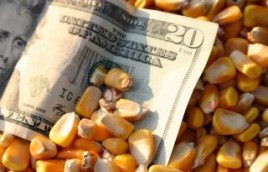Farm Taxes: Organized Records are Key


CHICAGO (DTN) -- Given dire forecasts for corn and other commodities' profits in 2016 and beyond, it's worth hearing how some of agriculture's wise men plan to adapt to the new economics of crop production. Here are some of the more provocative strategies shared by a panel of commercial growers at last week's DTN/The Progressive Farmer Ag Summit. Their main premise was that retailers -- and some land owners -- will need to recognize that crop producers can't continue to pay 2013 costs when corn hovers at 2007 price levels.
-- Give your suppliers a goal. Ben Riensche, an 11,000-acre Jesup, Iowa, farmer, has asked all his suppliers for bids at 80% of last year's prices. Instead of splitting his seed needs across...

By Todd Hultman DTN Analyst
Most of the numbers in USDA's December Supply and Demand report Wednesday looked familiar, with the agency making few changes from its November estimates. In fact, the U.S. ending stocks estimates for soybeans and wheat did not budge from November, staying at 465 million bushels and 911 million bushels respectively.
After Wednesday's report, March corn was up 1/4 cent, January soybeans were unchanged, and March Chicago wheat finished up 8 1/4 cents.
For corn, USDA increased the ending stocks estimate from 1.760 billion bushels to 1.785 bb, a little more than was expected by analysts. It should have been no surprise, though, to see a 50-million-bushel reduction in the export estimate as export business has been especially slow for both...